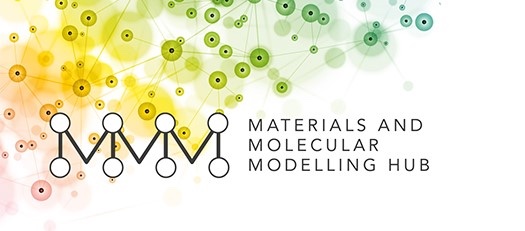
- This event has passed.
MMM Hub Conference & User Meeting
8 November @ 1:30 pm – 9 November @ 3:30 pm
Venue: HPE Centre for Innovation, Techworks, 1 Aldermanbury Square, London, EC2V 7HR, United Kingdom
The Materials and Molecular Modelling (MMM) Hub is holding a conference and user meeting on 8-9 November 2023, to bring together the national community of modellers in materials and theoretical chemistry to present the latest research in the field, and provide the opportunity to network and discuss with like-minded researchers. The meeting is taking place at the HPE London Customer Innovation Centre, just around the corner from St. Paul’s Cathedral in the heart of the City of London.
We are supported by HPE (Hewlett Packard Enterprise), hardware provider of the MMM Hub’s computer ‘Young’

The conference will highlight the high-calibre scientific throughput produced across the MMM Hub’s partner community and beyond, highlighting particularly the contribution of modern HPC resources (including MMM Hub’s ‘Young’), in enabling these advances. A selection of breakthrough materials and molecular modelling research taking place across the country will be presented, addressing challenges to society and industry through simulation at the atomic scale, alongside discussion in emerging computing trends and how this impacts materials scientists.
Topics will include, but not be limited to, molecular modelling, biological and technological soft matter, functional materials and devices, structural materials, surfaces and interfaces and methods and method development. The meeting will provide an excellent opportunity for researchers at all levels to learn about the forefront of this important field in numerical simulation, and to showcase their most recent results.
The meeting will see a number of invited and contributed talks, plus a selection of 2-minute flash talks from across the community. We also invite participants, particularly graduate student users of the Hub, to contribute A1-size, portrait orientation posters of their research. The posters will be on display to participants throughout the day, and at a drinks reception and Poster Presentation.
Confirmed invited speakers:
Claire Adjiman FREng – Imperial College London
Recent developments in crystal structure prediction – models, algorithms, applications
Rachel Crespo-Otero – University College London
Modelling photochemical processes and excited state dynamics in organic molecular crystals
Ricardo Grau-Crespo – University of Reading
Designing chalcogenide materials for thermoelectric applications: density functional theory and machine learning
Thermoelectric devices, which can convert heat into electricity, have the potential to significantly enhance future green energy systems, if materials with optimal electron and phonon transport characteristics become available. In my talk I will present computational strategies combining DFT and machine learning (ML) for the investigation of thermoelectric materials. In addition to prototype chalcopyrite, CuFeS2 [1, 2], we have studied a wide range of chalcopyrite-structured chalcogenides [3,4] and pnictide compounds [5]. While the electronic transport properties of these materials are attractive, they suffer from too high thermal conductivities. To afford accurate predictions across this large family of compounds, we solve the phonon Boltzmann transport equation with force constants derived from DFT and ML-based regression algorithms, reducing by about two orders of magnitude the computational cost with respect to conventional approaches of the same accuracy. The results allow us to rationalise the role of chemical composition, temperature, and nanostructuring in the thermal conductivities, and to predict interesting compositions for thermoelectric applications within this important family of semiconductors. I will also show how machine learning techniques can be employed in a more data-intensive approach to identify promising compositions for thermoelectric applications within a wider chemical space [6]. We have developed a neural network model with Transformer architecture which can predict electron transport coefficients for a given temperature and doping level, from knowledge of the material’s composition [7]. A webapp is available for easy interaction with the model [8].
[1] Tippireddy et al. Chemistry of Materials 34 (2022) 5860.
[2] Tippireddy et al. Journal of Materials Chemistry A10 (2022) 23874.
[3] Plata et al. Chemistry of Materials 34 (2022) 2833–2841.
[4] Plata et al. Journal of Materials Chemistry A11 (2023) 16734.
[5] Posligua et al. ACS Applied Electronic Materials (2023). In press.
[6] Antunes et al. in Machine Learning in Materials Informatics: Methods and Applications 2022, ACS Publications.
[7] Antunes et al. Machine Learning: Science and Technology 4 (2023) 015037.
[8] https://thermopower.materialis.ai/
Dr Ricardo Grau-Crespo grew up in Cuba, where he studied Physics at the University of Havana. He completed his PhD in Computational Materials Science at Birkbeck, University of London. He is currently an Associate Professor of Materials Theory at the University of Reading, where his group uses a range of computational techniques, from first principles to machine learning, in the investigation of energy materials, mainly for thermoelectric and photocatalytic applications.
Phil Hasnip – University of York
Johannes Lischner – Imperial College London
Modelling the generation and thermalisation of hot carriers in metallic nanoparticles with more than one million atoms
Localized surface plasmons in metallic nanoparticles give rise to very strong light absorption. The decay of these excitations results in the generation of energetic or “hot” electrons and holes which can be harvested and harnessed for applications in photovoltaics, photocatalysis and light sensing. To optimize hot carrier production in devices, a detailed theoretical understanding of the relevant microscopic processes, including light-matter interactions, plasmon decay and hot electron thermalization, is needed. In my talk, I will describe a material-specific theory of hot-carrier generation and thermalization in metallic nanoparticles which combines a classical description of the electromagnetic radiation with large-scale atomistic quantum-mechanical tight-binding simulations. I will present results for hot carrier distributions in spherical nanoparticles of gold, silver and copper and discuss the relative importance of interband and intraband transitions as function of nanoparticle size. I will also show changes to the nanoparticle shape affect the properties of hot carriers. Finally, I will describe results for more complex systems, such as core-shell nanoparticles or antenna-reactor systems in which small catalytic nanoparticles are adsorbed to a larger plasmonic nanoparticles.
Johannes Lischner is a Professor in Theory and Simulation of Materials in the Department of Materials at Imperial College London. He is also the Director of the MSc in Advanced Materials Science and Engineering and Head of Events of the Thomas Young Centre. He obtained a Ph.D. in physics from Cornell University in 2010 working in the group of Prof. Tomas Arias. From 2010 to 2014, he was a postdoctoral researcher at UC Berkeley and Lawrence Berkeley National Lab in the groups of Prof. Steven Louie and Prof. Marvin Cohen. His research interests involve developing novel theoretical methods to describe electronic excitations in complex materials and to use these techniques to study and predict properties of materials for applications in photovoltaics, photoelectrochemistry and optoelectronics.
08/08/2023 – 08/09/2023 – Early Bird registration £100, including a conference dinner on Wednesday 8th November.
08/09/2023 – 09/10/2023 – Standard registration £150, including a conference dinner on Wednesday 8th November.
We may be able to provide some financial assistance towards early career delegates participation. Please send an email to the organising committee at tyc-administrator@ucl.ac.uk justifying your reason for applying for support to attend the meeting.
Abstract submission deadline: 4pm, Monday 9th October 2023
MMM-Hub-conference-2023-privacy-notice
Code of conduct:
We value the participation of every member of the materials and molecular modelling community and want to ensure that everyone has an enjoyable and fulfilling experience, both professionally and personally. Accordingly, all participants of the MMM Hub Conference and User meeting are expected to always show respect and courtesy to others. The MMM Hub and its partners strive to maintain inclusivity in all of our activities. All participants (staff and students) are entitled to a harassment-free experience, regardless of gender identity and expression, sexual orientation, disability, physical appearance, body size, race, age, and/or religion. Harassment in any form is not acceptable for any of us. We respectfully ask all attendees of the MMM Hub Conference and User meeting to kindly conform to the following Code of Conduct:
- Treat all individuals with courtesy and respect.
- Be kind to others and do not insult or put down other members.
- Behave professionally. Remember that harassment and sexist, racist, or exclusionary jokes are not appropriate.
- Harassment includes, but is not limited to, offensive verbal comments related to gender, sexual orientation, disability, physical appearance, body size, race, religion, sexual images in public spaces, deliberate intimidation, stalking, following, harassing photography or recording, sustained disruption of discussions, and unwelcome sexual attention.
- Participants asked to stop any harassing behaviour are expected to comply immediately.
- Contribute to communications with a constructive, positive approach.
- Be mindful of talking over others during presentations and discussion and be willing to hear out the ideas of others.
- All communication should be appropriate for a professional audience, and be considerate of people from different cultural backgrounds. Sexual language and imagery are not appropriate at any time.
- Challenge behaviour, action and words that do not support the promotion of equality and diversity.
- Arrive at the conference events punctually where possible.
- Show consideration for the welfare of your friends and peers and, if appropriate, provide advice on seeking help.
- Seek help for yourself when you need it.
MMM Hub Conference 2023 Organising Committee
George Booth, King’s College London
Alejandro Santana Bonilla, King’s College London
Ed Smith, Brunel University London
Karen Stoneham, University College London
Jun Xia, Brunel University London
With organisational support from:
Hannah Brier, Hewlett Packard Enterprise
Eric Fauvet, Hewlett Packard Enterprise
Martin O’Sullivan, Hewlett Packard Enterprise
Nick Southorn, Hewlett Packard Enterprise

